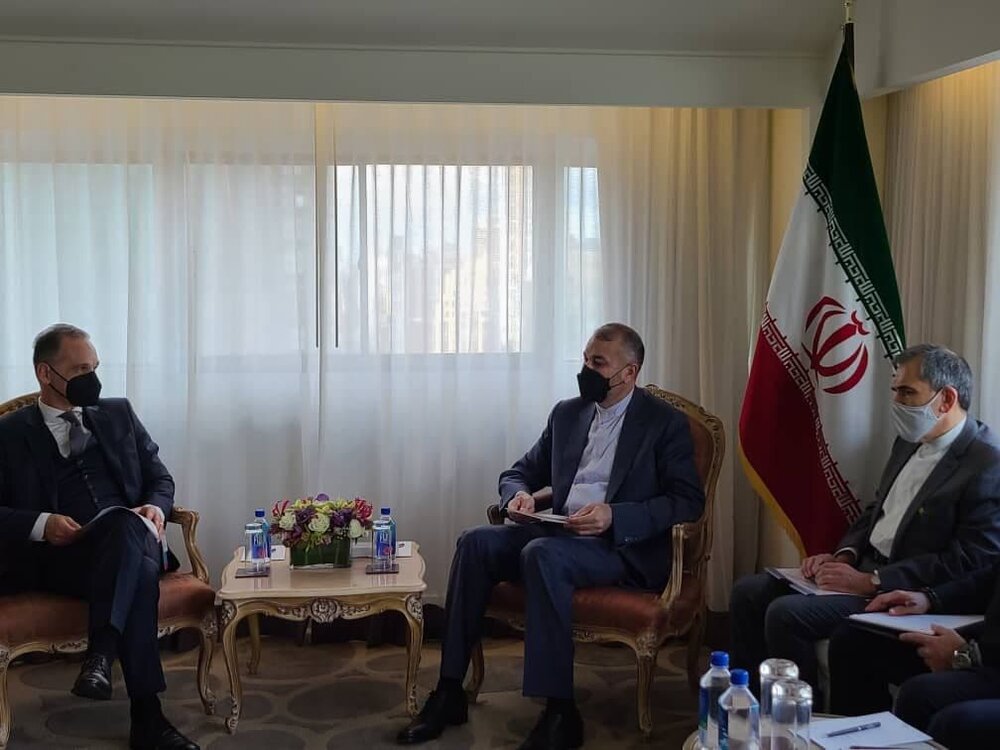Iran lays out new foreign policy doctrine at UNGA

TEHRAN – After years of on-again, off-again talks with the West over a 2015 nuclear deal that overwhelmingly dominated its foreign policy, Iran is slowly moving toward a broader foreign policy that is not confined to the tattered nuclear deal.
During his stay in New York, the new Iranian foreign minister, Hossein Amir Abdollahian, has made it clear to his foreign interlocutors that Iran is embarking on a new foreign policy course, one that is based on “economic multilateralism” and broader relations with the world, particularly the neighboring countries.
This course is being charted out after decade-long nuclear diplomacy with the West failed to produce tangible results for Iran. It also marks the start of an era of decoupling Iran’s foreign policy for the 2015 nuclear deal, officially known as the Joint Comprehensive Plan of Action (JCPOA). For about a decade, the JCPOA has dominated Iran’s foreign policy. It has been raised in almost every meeting between Iranian foreign ministers and their counterparts from Europe and elsewhere in the world.
This domination has also resulted in severe fluctuations in Iran’s economy.
But now it seems that the new Iranian government is ultimately coming to a conclusion that the country’s foreign policy should by no means be limited to the JCPOA.
The early signs of this policy come to the surface during the recent visit by Iranian President Ayatollah Seyed Ebrahim Raisi to Tajikistan, where he initiated the process of Iran’s joining the Shanghai Cooperation Organization (SCO).
Addressing the 21st SCO Summit in Dushanbe, Ayatollah Raisi said, “When I took over the presidency of the Islamic Republic, I introduced my foreign policy orientation as focusing on ‘economic multilateralism’ and strengthening ‘neighborhood policy’ in its broadest sense, and strengthening its presence in regional organizations.”
The Iranian president added, “The combination of the Eurasia and One Road-One Belt initiatives can be an objective realization of this approach, and the vast potential of the Islamic Republic of Iran in terms of geopolitics, population, energy, transportation, human resources, and most importantly spirituality, culture and civilization can cause a significant stimulus to this outlook.”
Iran’s membership in the SCO was achieved during the first foreign visit by Ayatollah Raisi in his capacity as Iran’s president. So, it gave the Raisi team a boost at the start of their Asia-oriented foreign policy.
The 67th United Nations General Assembly is another occasion for this team to further elaborate their newly-crafted foreign policy. Abdollahian put Iran’s new orientation into practice during his meetings with foreign officials at the UN. He met with many counterparts including top diplomats from Europe.
Abdollahian spent much of his meeting with German Foreign Minister Heiko Maas discussing the situation around the JCPOA. The Iranian foreign minister was keen to communicate Iran’s new foreign policy to Maas. He told his German counterpart that “the other signatories to the JCPOA must have flexibility and understand the new situation following the inauguration of the new Iranian administration.”
Abdollahian also “underscored that the administration’s definite policy is to not tie the Iranian economy to the nuclear deal, declaring Iran’s readiness to forge ties irrespective of the JCPOA,” according to the Iranian foreign ministry.
Notably, the Iranian foreign minister stressed that the Iran-Germany trade and economic ties are not satisfactory at all and that Tehran and Berlin must find a solution to this problem.
The new Iranian government began its new foreign policy by joining the SCO and pushing forward the neighborhood policy which aims to enhance Tehran’s relations with the neighboring countries. In continuation of the new orientation, the Raisi government seeks to further boost relations with more countries regardless of the fate of the JCPOA.
